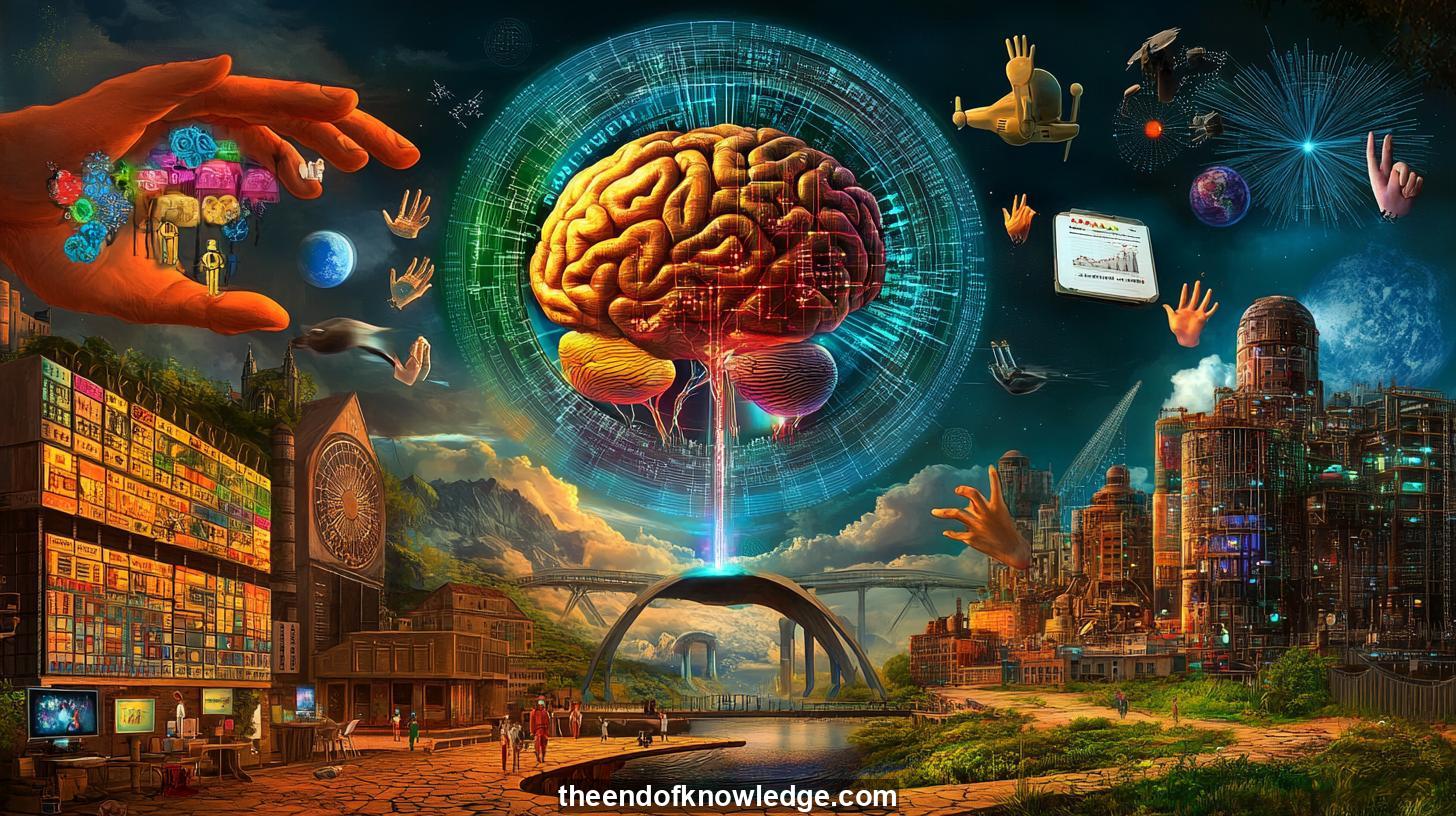 >
>
Concept Graph, Resume & KeyIdeas using DeepSeek R1 :
Resume:
The discussion revolves around the evolution and impact of artificial intelligence (AI) agents, emphasizing their integration with large language models (LLMs) and multi-agent systems. Participants explore how these technologies transform industries, raising concerns about job displacement and the need for ethical frameworks. Companies like Microsoft and NVIDIA are highlighted for their advancements, while the importance of education and adaptation to new tech demands is underscored. The conversation also touches on the necessity for global regulation to address the socio-economic and ethical implications of AI.30 Key Ideas:
1.- AI agents integrate with LLMs, enhancing functionality across sectors.
2.- Multi-agent systems enable complex task automation and decision-making.
3.- Job displacement concerns arise from increased automation.
4.- Ethical frameworks are crucial to guide AI development responsibly.
5.- Companies like Microsoft and NVIDIA lead AI innovation.
6.- Education must adapt to prepare workers for AI-driven economies.
7.- Global regulations are needed to address AI's socio-economic impact.
8.- AI adoption requires balancing efficiency with ethical considerations.
9.- The future of AI hinges on interdisciplinary collaboration.
10.- Transparency in AI decision-making is essential for trust.
11.- AI systems must align with human values to ensure ethical outcomes.
12.- The integration of AI in education can bridge skill gaps.
13.- AI technologies require robust governance structures.
14.- Multi-agent systems offer solutions for complex real-world problems.
15.- The impact of AI on employment necessitates proactive policy-making.
16.- AI adoption demands a global, unified regulatory approach.
17.- Ethical AI development involves diverse stakeholder engagement.
18.- AI technologies are transforming industries at an unprecedented pace.
19.- The need for AI literacy is growing across all sectors.
20.- AI agents are revolutionizing customer service and support roles.
21.- The development of AI requires addressing privacy concerns.
22.- AI systems must be designed with accountability mechanisms.
23.- The future workforce will rely heavily on AI tools.
24.- AI technologies are reshaping the global economy.
25.- Ethical considerations must be integrated into AI design.
26.- AI adoption requires significant investment in infrastructure.
27.- The impact of AI on society is multifaceted and far-reaching.
28.- AI technologies offer solutions for global challenges.
29.- The ethical use of AI is a shared responsibility.
30.- AI innovation must be guided by humanity's best interests.
Interviews by Plácido Doménech Espí & Guests - Knowledge Vault built byDavid Vivancos 2025